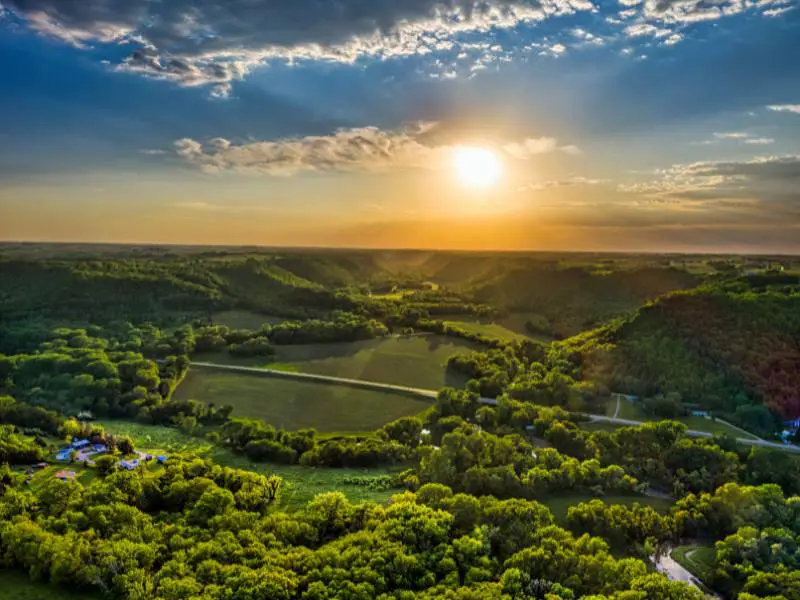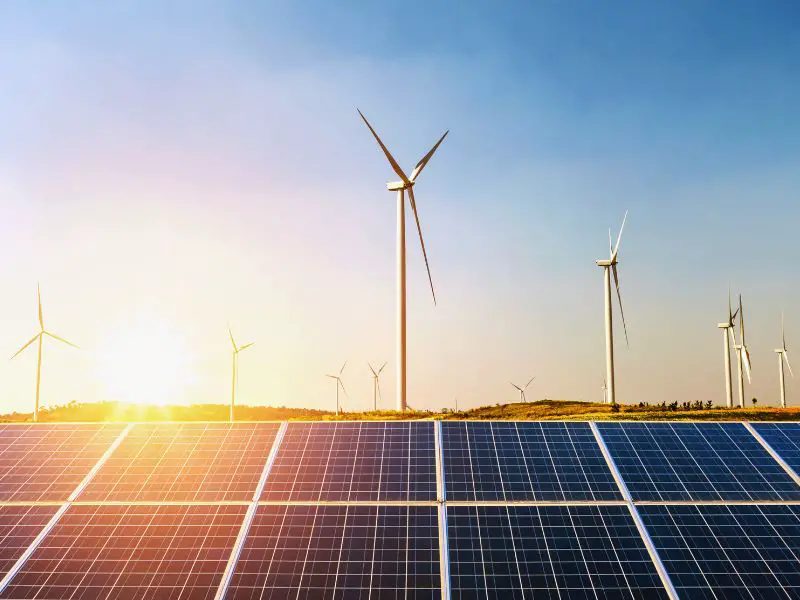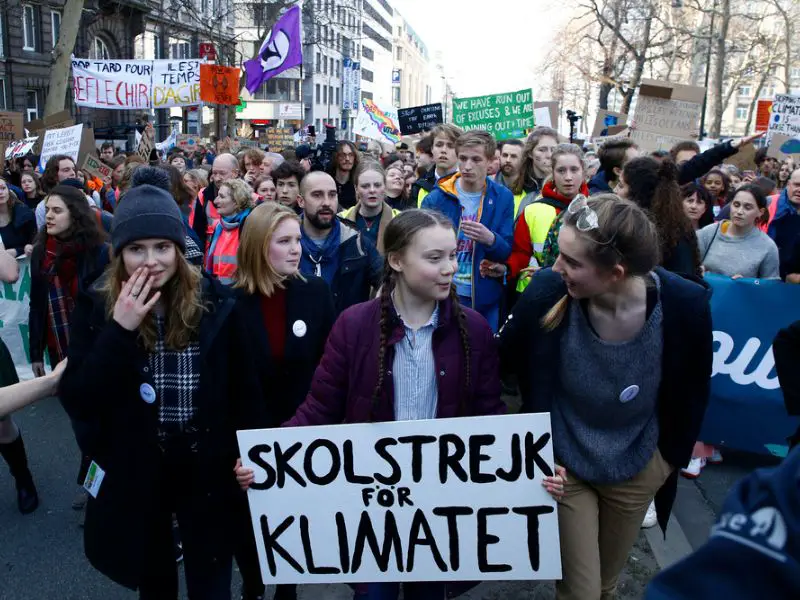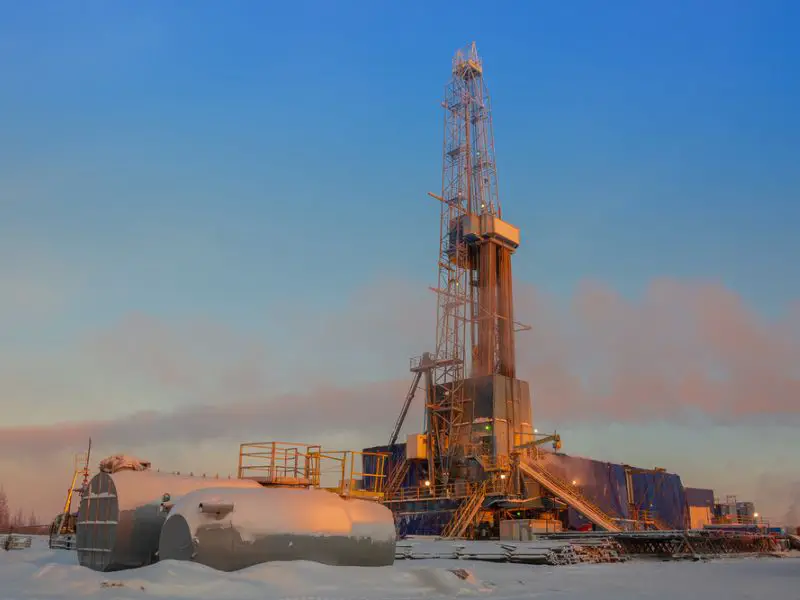There is no denying that the climate crisis is already affecting our planet. People and the natural world are experiencing its effects due to increasingly frequent and catastrophic weather events, melting glaciers, and rising sea levels. The good news about effects of climate change is that more people, groups, businesses, and governments are reacting to the problem every day. People are banding together to take proactive measures to lessen the worst effects of climate change.
We can alter direction by working together. We can chart a course for a future in which corporations depend on renewable energy, cities rethink trash management and transportation, and communities and people collaborate to mitigate the worst effects of climate change.

9 Good News About Effects of Climate Change
1. We’re Learning to Deal With Developments That Have Already Happened
Undoubtedly, the most vulnerable people and creatures are the first to feel the effects of our changing climate. Those from the most vulnerable communities are the best candidates to lead efforts to resolve the climate issue. When preparing for and adapting to the effects of climate change, WWF collaborates with communities, governments, and research institutions worldwide.
Climate change, in the same manner, that it affects the most vulnerable people first, raises the burden on endangered and fragile animals. The WWF’s Wildlife Adaptation Innovation Fund tackles this climate vulnerability by funding pilot projects that uncover novel solutions to assist animals in adapting to climate change.

2. The Answers We Need for a Carbon-Free Future Are Currently Available
Low-cost solar, wind, and battery technologies are on lucrative, exponential growth paths that, if maintained, would be sufficient to cut emissions from energy production in half by 2030. Wind and solar energy routinely outcompete fossil fuels in most of the world’s areas. If continued, electric vehicle growth has the potential to attain a 90% market share by 2030, but only if solid regulations encourage this trend.
We can use these technologies and possibly build up other, untested ones to eliminate almost two-thirds of projected emissions in 2030. Moreover, governments are more than needed to propel this development and lead us the rest of the way.

3. The World Is United in Mitigating the Effects of Climate Change
In 2015, world leaders from 196 nations gathered in Paris to sign the first genuinely global climate agreement. The United States, an early signatory, indicated its intention to withdraw from the accord in 2017 under the Trump administration. However, as part of the, We Are Still In initiative, a growing coalition of over 3,600 leaders from cities, states, tribes, corporations, colleges, and universities banded together to secure America’s continued commitment to the Paris Agreement. This alliance encompasses all 50 states, represents 155 million people, has a GDP of nearly $9.46 trillion, and is increasing daily.
4. Businesses Are Banding Together to Safeguard Our Increasingly Warming Planet
Nearly half of the major corporations in the United States now realize that combating climate change and preserving our planet for future generations is everyone’s duty. Furthermore, companies have a unique chance to lead as some of the world’s most significant energy consumers. Businesses also recognize the significance of adjusting to climate change.
The corporate sector is increasingly mobilizing to confront the challenges posed by climate change while recognizing and using nature as a solution. WWF collaborates with businesses and cities to adapt to the climate catastrophe and take on leadership roles in calling for more excellent government action. Together we can drive ambition, establish science-based objectives, and convince companies to take action.
5. Gen Z and Millenials Are Demanding Action
As the number of climate-change-positive actions grows, there are more and more youths making innovative movements. With a global youth climate strike movement, Swedish climate activist Greta Thunberg has motivated an entire generation to take action. Besides the large-scale movement “Fridays for Future” (FFF), young activists from North and South America are protesting on behalf of the climate daily. Through various initiatives, these young people are entering politics. Several UK parliament members are young climate activists, as are members of the Brazilian Congress and the German parliament.

6. Rich People Are Finally Stepping up (In Some Ways)
At the United Nations climate talks, there has yet to be an agreement on the wealthy paying their fair share to assist the developing world in coping with the unavoidable loss and damage caused by global emissions. However, the rich are finally taking action to drive a transition to clean energy in some countries.
7. Sweden Paves the Way for Clean Air Travel
Braathens Regional Airlines of Sweden announced in June that it flew the first commercial aircraft fueled entirely by renewables. As electric and hydrogen-powered aircraft remain years away, sustainable fuel is viewed as the most viable path to decreasing carbon emissions in aviation. Neste Oyj, a fuel manufacturer, claims that their alternative cuts life-cycle greenhouse gas emissions by up to 80% compared to kerosene.

8. California Will Start to Ban Cars by 2035
Removing gas guzzlers off the road is one of the keys to supporting a transition to green energy. By 2035, California intends to ban the sale of fossil-fueled automobiles. The plan establishes milestones along the way, such as ensuring that at least 35% of all new passenger cars delivered by 2026 emit zero emissions, with a target of 68% by 2030.
9. The Uk’s Largest Bank Will No Longer Fund New Oil and Gas Developments
Lloyds, the UK’s largest domestic bank, said it would not fund new oil and gas developments. It joins the group of lenders decreasing financing for fossil fuels, including NatWest, which reduced lending to oil and gas customers by 21% in 2021.
This is part of the broader trend of banks, including even smaller players cutting or restricting loans to fossil fuel companies. As such, not only have many banks become less willing to finance new fossil fuel projects, they are increasingly more willing to provide additional funds to renewable energy efforts and low-carbon projects.

By accelerating the transition to clean energy, we can ensure that more and more people worldwide receive renewable electric, safe, and affordable benefits. By taking action today, we can avoid the worst effects of a climate catastrophe and ensure a brighter future for our planet. Now is the time to act.
Explore these innovative solutions designed to mitigate the impact of climate change and promote sustainability: Electric Cars, Electric Bike Speed Limits, E-Bikes

1 thought on “The Surprising Benefits on the Effects of Climate Change: Good News You Might Not Have Heard”